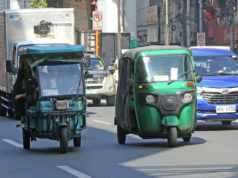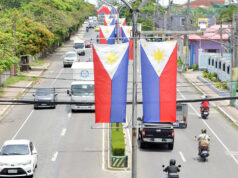When can we get serious in supporting research to produce a cure or treatment to COVID-19 from our very own VCO?
Scientists know that virgin coconut oil (VCO) has anti-viral properties and strongly believe that our country can add value to VCO and produce a food supplement to strengthen our immune systems against COVID-19 infection, or a medicine with its therapeutic claims vis-a-vis the disease approved by our Food and Drug Administration or other FDAs in the world.
Unfortunately, we seem to have misplaced our priorities. Our Department of Health officials are apparently content to wait for developed countries (or even not-so-developed ones like Russia) to sell us that vaccine or an anti-COVID medicine, if and when they are available. With all the monies we are willing to spend to flatten our COVID-19 infection curve and save lives, does it not make better sense that we also spend a significant part of that money to undertake primary research and development (R&D) as part of a determined program to produce a useful anti-COVID product out of our VCO?
But a dearth of confidence of our government officials on the potential of VCO and the capability of our scientists to turn VCO into a game changer in the world’s fight against COVID seems to hover above us, causing a drought of spending for COVID-related R&D on VCO. To check on the facts behind this claim, I asked Dr. Toby Dayrit, Professor of Chemistry at Ateneo de Manila University, about the level and make-up of public spending on R&D on VCO, particularly as it relates to fighting COVID-19. Dr. Dayrit is among our prominent scientists who have consistently believed in the potential of VCO and have quietly but consistently worked on finding out more about it. He is an Academician at the National Academy of Science and Technology, and President of the Integrated Chemists of the Philippines.
Dr. Dayrit says the Philippine Council of Health Research and Development (PCHRD) of the Department of Science and Technology (DoST) has provided funds to undertake three research studies on VCO for fighting the COVID-19 virus.
The first is an in-vitro study which his team did in Singapore. The second was a randomized controlled trial (RCT) on persons under investigation (PUIs) in Sta. Rosa City, which the Food and Nutrition Research Institute did. Lastly, another RCT study was done by UP Manila on COVID-19 patients at the Philippine General Hospital.
These PCRHD-supported research studies are incidental, not part of a deliberate program of the Department of Health (DoH) to create a food supplement or medicine out of VCO. PCHRD has funds to support this type of research, and as the COVID pandemic continues, allocating more funds to R&D related to COVID is compelling.
However, aside from a quarter-of-a-page list of COVID studies that the PCHRD is funding, there seems to be no new research money — out of the billions of pesos we spend for fighting COVID-19 — to finance a strategic R&D program for VCO-related research for fighting COVID. Dr. Dayrit says the DoST is willing to think more strategically about this effort and not just utilize existing PCHRD funds on this highly relevant and timely research. But it cannot without a directive from the national leadership and substantial new funds and administrative support to undertake the program.
The DoST has got to have the mandate from the President to go all the way: from conducting primary research; to deepening our knowledge on promising leads from earlier research; to doing this progressively, iteratively up to refining an idea of what that anti-COVID VCO product might be made up of; to producing a prototype of it; to conducting FDA-approved tests of its safety and efficacy; to commercializing this research with private sector investors; to establishing the property rights of the marketable product; and to supporting product owners to get FDA approval to sell the product locally. Generally a linear process with one step building on an earlier one, the program could be packaged in a way that makes most sense. But if successful in the sense of having produced a product that would be widely accepted locally, the program could stretch to helping our exporters market the product abroad.
Look at what we are missing out on with incidental funding only! Dr. Dayrit, in his e-mail to me, says he co-authored a paper with Mary Newport last January. They found that VCO “may have two mechanisms at work: antiviral and immunomodulatory… The immunomodulatory property of VCO is more interesting and potentially more powerful for me than the antiviral mechanism,” he wrote.
“May have” are the words he used. The authors are not sure yet, but that’s exactly the most honest statement unpretentious scientists would say. We caught them at the point of their study where they honestly disclose that they don’t know … yet. Dr. Dayrit says in his e-mail “COVID-19 is a complex disease and the immune system is also very complex. If VCO works — and there are many reports of successful treatments — we should study this more deeply.”
Yes, we should do that. But sadly Dr. Dayrit and scientists like himself cannot do more studies or better make their studies more systematic as they pursue a long term goal without the mandate from the DoST, the DoH, and the President, to work strategically about the whole thing. For now, all that our scientists can do with the existing funds from PCRHD, or occasionally from local governments like the province of Cebu, is to conduct a few random RCTs, or not even an RCT like that study on VCO’s efficacy with inmates of the province of Cebu as its participants.
The scientists would all tell us that their studies strongly support the efficacy of VCO against COVID-19.
But we would never find out why that is. And because we remain ignorant about the science behind the claim that VCO is effective against COVID-19, product owners cannot not pass FDA approval, and the VCO product, dubbed by its owners to be good for COVID, remains to be considered just a food supplement with the underlying advice from the FDA that it has nothing to do about it. Then the world community would look elsewhere instead of here for COVID-19 antidotes.
Admittedly, this effort could be a long shot. But without funds there is no way we can understand how far we are from our goal. We hope the private sector would invest in it. But venture capitalists would still need a minimum knowledge about the science behind the potential of VCO as a potential cure for COVID-19.
This is where public funds would need to be invested — to support primary research, to understand better this “immunomodulatory property,” or to discover new properties of VCO, and know how these properties could be put to use to combat this complex disease.
With a mandate from the President himself, the DoST can lay down the primary research program that would be farmed out to scientists to undertake in several grants, including investing in post-graduate scholarships to deepen our pool of homegrown scientists. Some of the monies invested in the program could yield no return for us, but for as long as they were spent legally and in pursuit of honest scientific research, we just have to be prepared to accept that loss.
But out of the several primary research grants that could be given out, we may generate new knowledge that can be pushed up the next rung.
The program could also have unintended benefits: new knowledge that could give us ideas on other useful products we can make out of our coconuts; a deeper pool of scientists who become more experienced in pursuing biological research; more and better equipped research laboratories; industrial designers more adept in producing prototypes of food supplements or medicines out of VCO; and more matchmakers who would help scientists, their home research institutions, and venture capitalists structure new investments to commercialize VCO- or bio-related research ideas.
All these would make our country an ideal place for placing domestic and foreign capital to build a bio-industry. We could become a regional center for bio-industrial research. COVID-19 may still turn out to be a boon for our coconut industry, not just to produce a cure out of VCO, but by sowing the seeds of a future regional center for bio-industrial research.
Perhaps it is now time for our Secretaries of Science and Technology, Health, Finance, Trade and Industry, and of Agriculture to persuade the President to authorize the undertaking of a strategic research program on coconuts and COVID, pouring a significant amount of public funds into it.
Despite the fact that other countries may already have their vaccines and medicines against this disease on the market as early as late this year, doing our own research is never too late. It could never be because of its intended or indirect benefits. Who knows, we may even produce a better product against COVID-19 from our VCO, and, importantly, give an income boost to our coconut farmers as well.
Ramon L. Clarete is a Professorial Lecturer at the School of Economics of the University of the Philippines.



